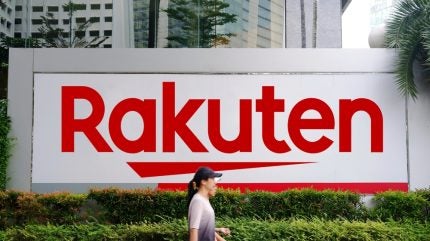
US-based Rakuten Medical has announced positive interim data from the Phase Ib/II trial of its photoimmunotherapy, ASP-1929, in combination with Merck & Co (MSD)’s Keytruda (pembrolizumab) in patients with recurrent and/or metastatic head and neck squamous cell carcinoma (HNSCC).
Following the positive results, the company now plans to start a global Phase III clinical trial evaluating the combination therapy of ASP-1929 and Keytruda as first-line therapy in recurrent HNSCC in the second half of this year. The study’s primary endpoint will be overall survival.
The results from the open-label Phase Ib/II study (NCT04305795) will be presented at the upcoming American Society of Clinical Oncology (ASCO) Annual Meeting in Chicago from 31 May to 4 June.
ASP-1929 is an antibody-dye conjugate comprising of an epidermal growth factor receptor (EGFR) antagonist antibody, cetuximab, and a light-activated dye, IRDue 700DX. The therapy is activated locally by inducing a photochemical reaction when illuminated with red light using a laser device system. This potentially causes membrane damage in cancer cells, leading to selective necrosis of cancer cells.
Cetuximab is independently sold under the brand name Erbitux by Bristol Myers Squibb as a treatment for late-stage HNSCC and metastatic colorectal cancer.
ASP-1929 received fast track designation from the US Food and Drug Administration (FDA) in 2018. It was approved as a treatment for unresectable locally advanced or recurrent head and neck cancer in Japan.
Access the most comprehensive Company Profiles on the market, powered by GlobalData. Save hours of research. Gain competitive edge.

Your download email will arrive shortly
We are confident about the unique quality of our Company Profiles. However, we want you to make the most beneficial decision for your business, so we offer a free sample that you can download by submitting the below form
By GlobalData
As of the data cut-off of 31 August 2023, 18 out of 19 patients received both therapies in the Phase Ib/II trial. Median overall survival and duration of response were not reached as of the data cut-off. The therapy had an objective response rate (ORR) of 35.3%, with four complete and two partial responses. At 24 months, the treatment had an estimated survival rate of 52.4%.
Commonly observed serious adverse reactions included dysphagia and tongue oedema. While there were no fatal events, two Grade 4 events, namely laryngeal oedema and tumour haemorrhage, were observed due to advanced disease.
In March, Rakuten raised $119m in a Series E financing round to develop its Alluminox drug discovery platform and fund the Phase III ASP-1929 monotherapy trial (NCT03769506). The open-label Phase III study is expected to enrol approximately 275 participants with recurrent HNSCC who have received at least two prior lines of therapy.

Sign up for our daily news round-up!
Give your business an edge with our leading industry insights.
